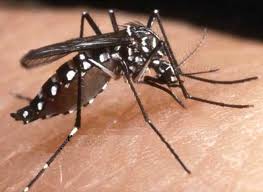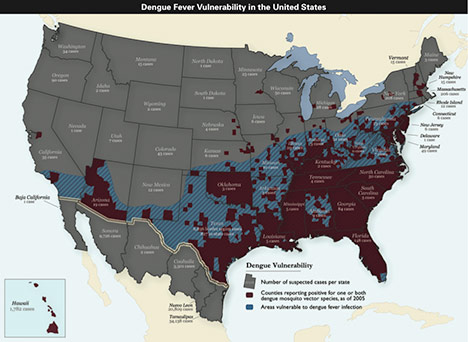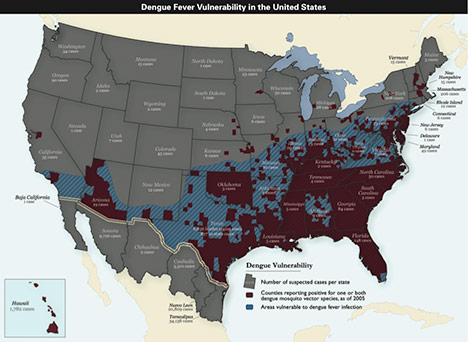The recent negative press around genetically modified organisms (GMO) needs a counterbalance. Because GMO works when it comes to reducing the spread of insect-borne diseases.
In this month’s Nature Biotechnology, scientists reported two successful trials using GMO mosquitoes, one in the Cayman Islands, the other in Brazil. The mosquitoes that spread the disease are Aedes aegypti and Aedes albopictus. Both are the main carriers of the virus responsible for the infection.

Today more than 2.5 billion on the planet are at risk to get dengue fever. Annual infections are estimated to be between 50 and 100 million. By 2085, researchers believe more than 5 billion on the planet will be at risk as global warming expands the range of the insects that spread dengue. That means a doubling of the number of potential cases without mosquito population control.
Dengue causes flu-like symptoms. In its mild form the fever runs its course over about two weeks. Severe cases (formerly called Dengue Hemorrhagic Fever) lead to hospitalization. In 2010, a half million severe dengue cases were reported to the World Health Organization. Of those 2.5% died from the disease.
How is the disease transmitted? By female mosquitoes who absorb the virus from infected humans and incubate it before transmitting it to anyone else they bite during their lifetime. Uninfected mosquitoes, therefore, become infected through human contact. Humans are infectious from about the 4th day until the fever resolves usually around the 12th day.
Where Aedes aegypti largely lives in tropical and semi-tropical climates, Aedes albopictus is capable of surviving in cooler climates. And it is the primary spreader of the disease into temperate climate zones in Europe and North America where cases of dengue are increasing. Dengue is potentially lethal when it is not detected and turns into the hemorrhagic version of the disease. It can cause severe bleeding and organ impairment accompanied by high fever and vomiting. There is no vaccine for dengue fever.
Up until now the method of control involved preventing mosquitoes from depositing eggs in standing water by applying insecticide through spraying programs. GMO is a new strategy for fighting the disease. In the Cayman Islands, a British biotech firm, Oxitec has introduced a GMO male mosquito containing a gene that causes offspring to die before maturing. The trial involved the release of 3.3 million GMO Aedes aegypti. The result, an 80% reduction in the mosquito population in the released area.
In Brazil, the program is being managed by Fiocruz Pernambuco, a Brazilian research institute, working with Oxitec. GMO mosquitoes have been released with results even more impressive than those in the Cayman Islands, a 90% reduction in the insect population.
Currently GMO mosquito programs have been approved for use to combat dengue in three countries: the Cayman Islands, Brazil and Malaysia. Proponents of GMO argue that the mosquitoes are sterile and that the genetic alteration, as a result, cannot remain in the environment. Those opposed raise concerns that even a small percentage of GMO mosquitoes might survive and propagate, arguing that there are too many unknowns when dealing with genetically modified animals, even mosquitoes. What would be the reaction of the general public if one of these GMO mosquitoes turned into a super bug and started to spread other insect-borne diseases such as malaria?










